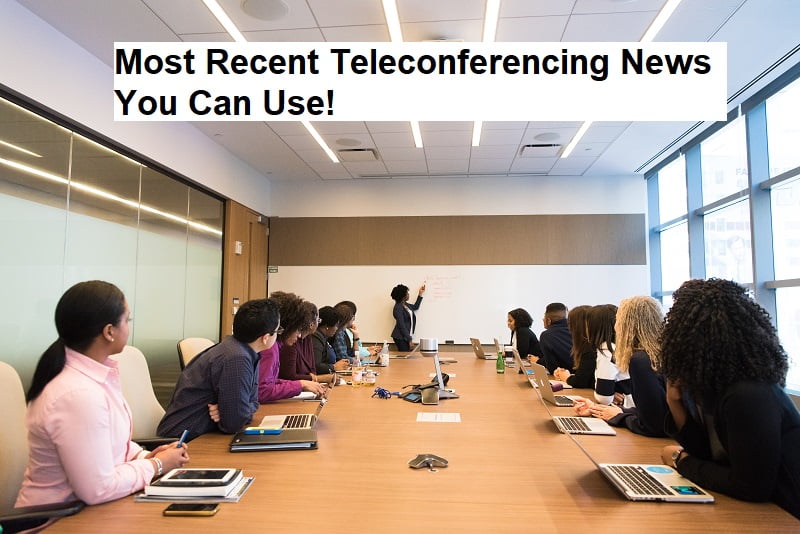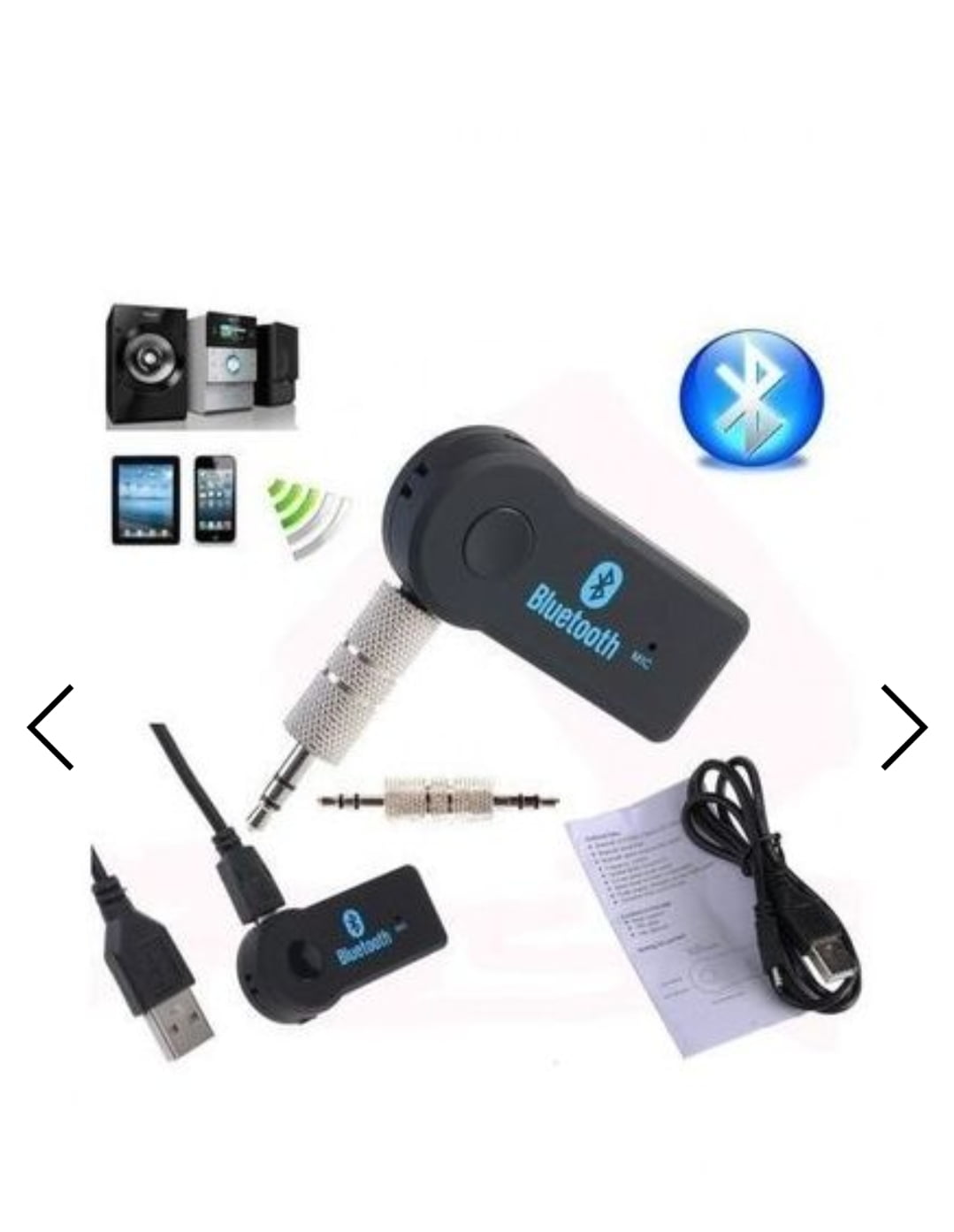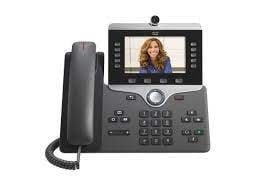top 10 skills for new world of work
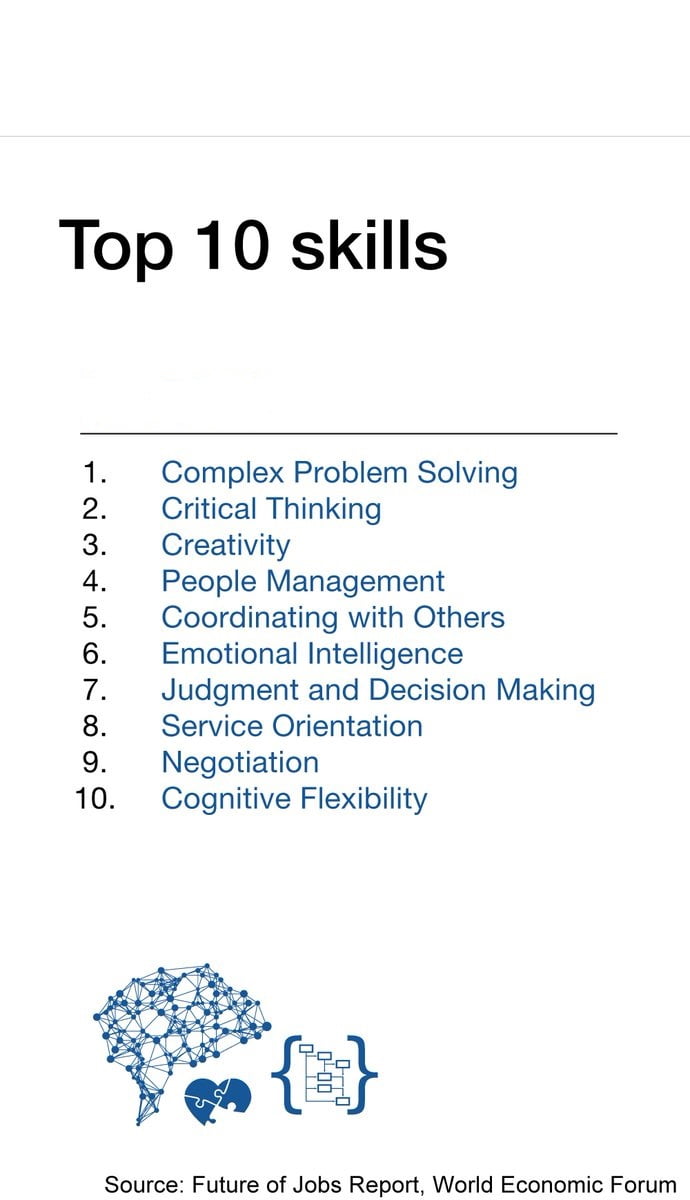
top 10 skills for new world of work
There are many changes coming in the world of work, such as increased competition, the need for more education and certifications, and the trend to change careers 5-7 times in a lifetime.
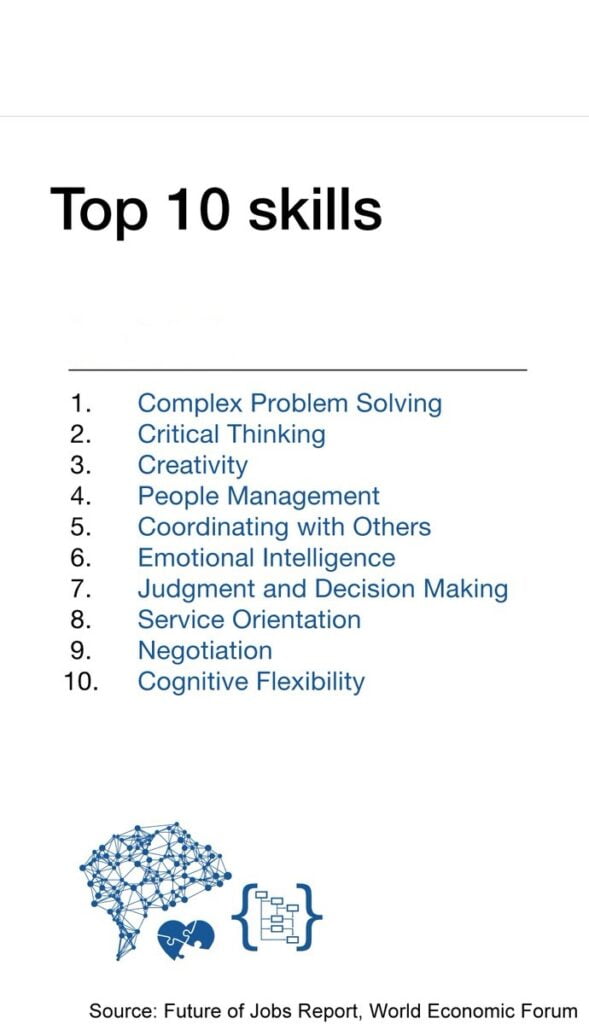
No matter what job or career path you decide to take, there are some basic skills that all employers look for. To succeed in the modern world of work, keep your skill set up- to- date.
The following is a list of the top ten skills needed for the new world of work.
1. Communication
Communication is the ability to effectively communicate your thoughts and ideas in person, on paper, and over the telephone. It involves listening to others and being open to other viewpoints and opinions.
What communication skills can you develop?
2. Creativity
Creativity is the ability to think and act “out of the box.” To be creative is to discover new and innovative ways of thinking and doing things.
How can you be more creative?
3. Technology
Understanding technology is the willingness to utilize computer systems, the latest software, etc.. Embracing technology means using the computer in your daily life and on the job.
What do you need to embrace technology?
4. Team Work
Team work is the ability to work effectively in a team situation. It is being able to utilize the right people to get the best results and being willing to lead and to follow.
What do you can you be counted on to bring to a team?
5. Flexibility
Flexibility is the ability to “go with the flow.” To be flexible, you change on an as-needed basis, with the ability to “change hats” frequently.
How can you bend and stretch more?
6. Information Management
Managing information is the ability to know where to get needed information—to search, locate, and retrieve it. This may involve utilizing various resources, whether they be people, printed materials, or the vast world of technology.
Where do you need to go to get the information you need?
7. Self Management
Self management is the ability to manage oneself in personal and professional situations. When you manage yourself, you are able to respond appropriately to stressful situations.
How can you more effectively manage yourself?
8. Customer Care
To care for the customer is the ability to care about the needs and concerns of other people, especially those you serve.
It is to “go the extra mile” for your customers or clients.
In what ways can you go “the extra mile” for others?
9. Character
To have character is to project a positive image by acting in a manner that reflects trust, confidence, honesty, and integrity.
What kind of character do you want to project?
10. Personal Development
To develop personally is the ability to continuously improve upon one’s skill set. It is to be dedicated to lifelong learning.
How can you commit to lifelong learning?
It is never too early to develop these key skills. And,with practice and commitment, you will become the kind of worker employers are looking for.
Virtual Assistants / Importance of Skills Emphasis
During a client interview, it is important to show that client what makes you different from other VA candidates.
This is a competitive world and clients now search for the most qualified VA by weighing their skills and determining how the VA will benefit them.
Skill emphasis during the interview is a must for landing a new client or business project.
The majority of clients will search for VAs who stand out based on their experience, their expertise, and their ability to enhance the clients project. Budgets can be expanded and profits can be higher when skills are emphasized properly.
There are three main kinds of skill emphasis needed:
1. Knowledge Based Skills
2. Transferable Skills
3. Personal Traits
Knowledge-Based Skills
Experience and education are examples of knowledge based skills. They will include your educational attainment, your additional VA training, any seminars you have attended,
VA workshops, and any other practices that you have used to enhance your VA knowledge. Your knowledge based skills can include but are not limited to:
Computer skills
Communication skills
Marketing skills
Managerial skills
Accounting skills
Organizational skills
Other knowledge based skills
Transferable Skills
These are the skills that you bring to the client that are beneficial to them in more than one way. What are you offering the client that they don’t already have or that they can’t find with another VA?
These skills will also be emphasized by the particular project or job. Transferable skills are very important and should be highlighted during your interview with the potential client.
Some examples of transferable skills would include:
Problem solving
Team leader potential
Writing skills
Client service oriented skills
Time management skills
Budgeting skills
Etc.
Personal Traits
This emphasis is to help the client determine who you are. Tell them something of yourself. This doesn’t have to be a bragging session.
You will need to sell yourself in a modest way. Your communication to the client about who you are will set the tone for the rest of the client interview.
Some ideas to emphasize this skill would be:
Good judgement
Well organized
Analytical
Goal oriented
Flexible
Creative
Etc.
Practice the following before conducting an interview with a possible new client:-
1. Self Assessment- Don’t emphasize traits or abilities that you don’t possess. Be honest about your past performance and focus on the abilities that you do possess. Write them down for the interview.
2. The Interview- Get in front of the mirror. Have a list of questions that a new client might ask and practice answering those questions in a professional manner. Take notes beforehand to help you in communicating exactly what you want the client to realize about you and your determination to have them as a client.
3. Technical Skills– Practice highlighting your technical skills AND your problem solving skills. The client is there because they have a “problem” or project that they cannot manage on their own. This is where you become extremely valuable to them and their project.
You should be able to land many new clients by just following the simple above advice!
The Importance of Transferable Skills for Graduates
Transferable skills can be defined as those skills or abilities that can be applied equally from one job to another. They are skills that graduates have gathered through volunteer work, sports, hobbies, community work, and can be used in their new careers.
The importance of transferable skills for graduates cannot be overstated. There is a growing demand from employers, for strong graduates with desirable transferable skills.
In this day and age, employers expect graduates to not only have knowledge of their area of study or expertise, but to have the inherent and learned ability to adapt to the new working environment they will be joining,
bringing exceptional communication skills, the ability to lead and be led, and the proven ability to function efficiently and effectively.
Transferable Skills and Education
Education does not mean simply to impart knowledge, but to contribute to the holistic development of the student.
Skills, such as communication skills, planning skills, and multi-tasking skills, among others, are known as transferable skills, and are also alternately called ‘key skills,’ ‘generic skills,’ or ‘core skills.’
In the ever-changing employment market, there is an increasing need for graduates to move away from the conventional market, as there is a diverse range of jobs for them.
They need to perform efficiently as soon as they take up their new appointment, utilizing the many transferable skills they may have picked up during their education. Today’s work environment strongly endorses the transferable skills in a graduate seeking employment.
There is research going on to identify the type of transferable skills that are required by graduates. The scope of the research, among others, includes:
• Identifying transferable skills valued by employers.
• Ascertaining the importance of transferable skills when recruiting graduates
While recruiting graduates, ‘transferable skills’ is a more sought after factor as opposed to academic record and relevant work experience.
Developing transferable skills that would be an asset in a work environment is a major concern for graduates.
In the fast-paced work environment, employers are looking for graduates who can fit into their organizations; can add value and learning quickly.
More and more organizations and employers are looking to employ graduates, who not only are experts in their career field,
but also are competent in other realms of the business world including communication, networking, team building, and career management.
Some of the transferable skills, which employers look for, are:
• Delegating responsibility
• Dealing with crises
• Attending to visual detail
• Assessing and evaluating own and others’ work
• Time management
• Multi-tasking
• Presenting written and oral material
• Handling complaints
• Keeping records
• Coordinating activities
• Planning and arranging activities
• Utilizing specific computer software
• Training or teaching others
• Motivating others
• Identifying and managing ethical issues
Organizations with affirmative recruiting objectives will recruit earlier, even before the end of the academic year, allowing them first pick in graduates.
Virtual Assistants – Learn More VA Skills and Produce More Profits
Being a Virtual Assistant (VA) can be a rewarding and enjoyable business to be in, particularly if you already have basic administrative skills.
But only knowing the very basic skills limits what services you offer to clients and also restricts your income growth.
This is where acquiring new and more advanced skills will come in handy. The more skills you know, the more services you can offer clients, and that definitely means more money in your bank account.
But what new skills are worthy of learning in order to grow your income and your business? In this article, we discuss what skills a Virtual Assistant should have beyond having basic administrative skills, and what skills will give a VA greater earning potential.
Boost your VA Skills
More and more people are looking for ways to create extra income and in turn, some of those people will start an online business.
More and more brick-and-mortar businesses are taking their offline business presence and creating an online presence to help them generate even more income and growth.
You see, as these new online businesses appear in the marketplace, these businesses will look to hire Virtual Assistants to help them grow their business as well as to help the remain on the cutting edge,
and the outcome will be different services that need to be outsourced. Some outsourced services might include:
– Video tutorial creation
– Audio production such as providing professional sounding audio commercials
– Video distribution services
These types of services are already being performed by VA’s right now and will soon become the typical services that virtual assistants provide as the online marketplace becomes more competitive.
Do you have to know how to produce a video commercial or tutorial? No, not necessarily; but if you want to explode your income online and grow your business you should learn this new skill.
Don’t be surprised one day if your best client asks you if you know how to create video tutorials or if you distribute videos online to places like YouTube.com.
Must Know Virtual Assistant Skills
Now that we have covered what Virtual Assistant-boosting skills you should have, it’s time to go over the skills that all Virtual Assistants must and should learn besides the obvious basic administrative skills. These must-know skills are:
– Setting up an autoresponder message series for clients. This might include using programs like Aweber at Aweber.com
– Setting up pay-per-click ads and banner ads online to places like Google Adwords
– Compiling reports into PDF format
– Distributing articles to article directories and doing it efficiently
– Adding Google Analytics tracking code to shopping carts
Issuing customer refunds in primary programs like PayPal, 2Checkout, and Google Checkout
– Working in customer support systems like the Kayako helpdesk and PerlDesk
Knowing the types of skills listed above is crucial to your online success. If you don’t know any of the skills mentioned, don’t worry, because you can learn them.
It will take some time to learn, but before you know it, you’ll be a pro.
Learning these new skills will most likely require you to purchase some software. For instance, if you want to learn how to create video tutorials, you should invest in screen capture video software.
You would then read the manual and practice this new skill. Of course, you don’t have to go through the hassle of buying every program out there to learn new skills.
Many programs like PayPal and Kayako come with a user manual or knowledge base to help you work through the programs. This means that you don’t actually have to buy the Kayako help desk program in order to use it.
By reading manuals, working in programs, and using software hands-on you’ll be teaching yourself a new skill.
Remember, it will take effort and some time to learn new skills, but in the end, you and your business will benefit.
Of Course You Have Skills And Talents You Can Use In Retirement!
I can’t tell you how often I hear people who are contemplating retirement say, “but I don’t know how to do anything except my job.
” Baloney! You have skills and you have talents. You might have buried them in the back yard, but they are still there. What is more, if you held a job or ran a household — YOU HAVE SKILLS AND TALENTS.
Some people seem to think that the moment they retire, either they forget everything they know and everything they know how to do.
Then when they they want to find a way to become involved in the community or a non-profit organization, they think they have nothing to offer.
When they think about finding a part-time job, they think they have no skills or talents anyone will want. Many even think they can’t discover new and meaningful ways to fill their time.
The challenge for many people is in understanding that all the skills and abilities and talents they learned and cultivated through the years are still important and applicable to new situations.
It is really a simple matter of learning to value ourselves, our abilities, and think differently about how our talents can be used.
For example, if you ran a household with several children, you are probably an organizational wizard. You have time management skills, planning skills, counseling skills, communication skills, plus quite a number of other useful skills.
You simply need to learn to think about the responsibilities, functions and tasks you performed day after day and break out individual skills. Once you have done that, you need to think about them in the abstract.
If you managed to get three children to afterschool activities in different parts of town at the same time and got them all back home again, you have planning and time management skills.
Those skills are adaptable. You can use those skills to figure out other logistical and time management challenges.
You might be an excellent delivery planner for a floral shop — you can chart out a logical order for the deliveries to be made that will meet all the deadlines, save gas, and save time.
You’ve been doing it for years! Now, if you want, you can do it for a little extra income.
Were you the person who ran all the fund raisers for school activities for the PTA for a number of years?
Are you good at figuring out what needs to happen in what order to put together a successful school fundraising event?
Did you break records in finding ways to raise money for band uniforms and travel? You have event planning skills and fund-raising skills.
You would be very valuable to a non-profit organization or a community organization.
Do you love art, know a great deal about it, and love sharing that information? Why not volunteer as a tour guide for an art gallery or museum?
The possibilities before us in re-firement are limitless. We simply need to think more creatively about the skills and talents we possess and explore opportunities to use them in new and exciting ways.
If you are stuck breaking free of restricting thinking about your abilities and talents, call me. I’ll help you rediscover your abilities and find exciting and fulfilling ways to transfer your skills and talents.
No Work Experience? No Problem! Transferable Skills on a Graduate Resume
College students and new graduates often feel they have nothing to include on a resume when conducting job search and for using with job applications.
College students’ work experience is often seemingly unrelated to their job targets, and aside from that, the only information left to include is education. However, while this may seem like the case, it simply isn’t so!
Transferable Skills
One method of approaching a college student or new graduate resume is to focus on transferable skills. These skills are applicable to different situations.
The ability to communicate well, for example, is a skill that is useful in any industry or position. Other transferable skills may include the ability to work well with numbers,
sales skills, or an ability to solve problems by looking at the big picture. These are only a few examples.
How do you list transferable skills? There are a number of ways to include transferable skills in your resume, job application, and cover letter. The following are some tips for various sections of the resume.
The Summary or Profile
Objective statements are out. Profiles are in. Open with a brief introductory paragraph describing your most “sellable” points.
Briefly list transferable skills here, or present them in a keyword summary list. This is exactly as it sounds: a list of keywords. Use those that show your transferable skills.
Education
Depending on your college major, you likely had to write papers, complete projects, or both. What were the outcomes of these?
Did you conduct comprehensive research on a subject? Design an engineering plan? Were these published or put into use in the “real world”? Use as much of your educational experience to your advantage.
You can also include a summary of coursework, which often demonstrates transferable skills that are used in the educational setting and in the world of business.
Employment History
Many college students have a work history unrelated to their targeted field. If this is true for you, take heart. You can include many transferable skills on your college or new graduate resume.
At the most basic, you likely gained professional skills such as dependability, working with others, collaborating on projects, communicating with clients or customers, and much more.
Your work history may not be as unrelated as it first seems.
Additional Information
Any volunteer work or memberships may lead to transferable skills. Just as your employment history helps you learn transferable skills, so too does volunteer work.
It also demonstrates a commitment to helping others. If you’ve fulfilled any roles in a professional organization, this too can show transferable (and sometimes directly related) skills.
When you take the time to thoroughly review your experience, education, and other related activities, you will discover a number of transferable skills.
Use these to your advantage! Your resume, college application, job application, or cover letter will be much stronger for it.
top 10 skills,top 10 skills of 2025,new world of work post covid,new world of work badges,world of work compensation certification,future jobs,the world of work,future of skills,



